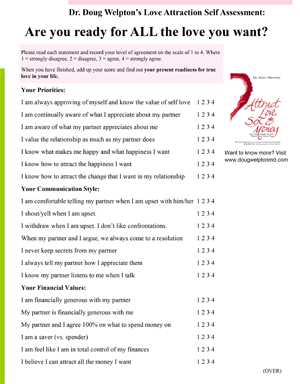I had last seen my friend fifty-six years ago. I was a student in his psychology class at Stanford University. At that time he was known as Richard Alpert, Ph.D. He is now known as Ram Dass. Between these two names lies an inspiring story, one in which he got de-tenured as a professor from Harvard University to be redeemed as a holy man in India. He returned to America to teach the spiritual beliefs and practices of Eastern religions to those Americans eager and yearning to follow in his footsteps.
This story began for me in my senior year at Stanford. I loved attending my class with Richard Alpert. He encouraged us to call him “Dick.” He was the funniest teacher I had ever known, a master of one-liners. His humor made it easy to learn from him. He showed me that learning could be fun. I regarded Dick Alpert as not just a teacher but also as a friend. He was open and approachable. When I was in conflict as to whether to go to medical school to become a psychiatrist or to pursue a Ph.D. in psychology he was the teacher I consulted.
Following my graduation from Stanford I was attending Harvard Medical School when I next learned that Richard Alpert and Timothy Leary made a name for themselves at Harvard University advocating that students experience trips on LSD. Harvard kicked them out and took away Dr. Alpert’s tenured professorship. In the process Drs. Alpert and Leary became celebrities advocating: “Tune in, turn on, and drop out.”
What led to Richard Alpert’s true celebrity was his work in India with Maharaji-ji, “the great king,” aka Neem Karoli Baba, who renamed him Ram Dass, or “servant of God.” When Ram Dass returned from India he lectured widely in America teaching what he had learned. His fame came with the publication in 1972 of his book Be Here Now. He became the leader and teacher to those, especially in the younger generation, who were seeking guidance in their spiritual quests. In 1993 Ram Dass’ traveling and teaching abruptly stopped when he had a cerebral hemorrhage which he described candidly and vulnerably in his book, Still Here, in 2000.
I gained even greater respect for Ram Dass when he honestly shared how he had temporarily lost his spiritual perspective under the stress of “being stroked” as he called it. The longer term consequence has been his development of even greater spirituality and empathy, which has been described in his most recent book, Be Love Now, co-authored by Rameshwar Das and published in 2010.
While visiting my daughter and her husband and helping with my four week old granddaughter I asked my daughter whether she could help me see Ram Dass who lives nearby. She quickly got me connected with Dasi Ma, his assistant, to whom I explained I had been a student of his many years ago and I wanted to express my gratitude to him. Through Ram Dass’ kindness and generosity he agreed to meet with me the following day. At the appointed time my daughter drove me to his home.
As we drove I thought about what I wanted to say to Ram Dass. I realized there was one statement I strongly wanted to share with him. I wanted to express my deep gratitude, still with me over fifty years later, for his being honest about himself and making education fun. I noted, too, that it was unusual for me to have just one message I wanted to share. I also realized I did not want anything in return. If Ram Dass had stopped our meeting after I expressed my gratitude to him that would have been enough for me. I simply wanted to thank him while he and I were still here, still living.
As I walked through his foyer and into his living room I saw his beaming smile that instantly brought back to me his warmth and joy. I was reminded of him as a jester full of non-stop one-liners that kept me laughing through-out his class. At the same time it was very different because he now sat in his wheelchair with his right side not moving. I knew that he had been partially paralyzed by his stroke in 1993 and suffered from a difficulty finding words as he spoke.
As we greeted each other I said to him that I did not expect he would remember me but I had been a student in his psychology class at Stanford in 1956. I immediately told him that my reason for coming was to thank him. I shared with him that he had showed me the way no other teacher in college had that we could laugh and learn at the same time. His humor was usually about himself, sharing his truth in a funny way. More than anything I said to him that the lesson I took away from him as a teacher was that education could be honest and fun and not just serious. I told him this message was especially meaningful to me because I was inclined to be too serious. It took me many years in my life to learn that life is too important to be taken too seriously.
As Ram Dass and I talked I was moved by how quickly we shared about our lives and some of the similarities in our fathers and in our relationships with them. Both of our fathers were highly successful lawyers, hard driving, and ambitious for us as their sons with specific ideas of what we were supposed to do, to earn, and to become. While we both admired our fathers and their accomplishments we had clearly followed divergent paths from theirs.
Ram Dass’ father had been the President of the New York, New Haven and Hartford railroad. My father had been the senior, senior partner in the largest law firm in Los Angeles: Gibson, Dunn & Crutcher. For years he had headed their litigation department.
I shared with Ram Dass the story of my father taking my wife and me to visit the home in Brentwood where I grew up. When the current owner answered the doorbell he introduced himself to us by saying that he was a cardiologist at UCLA. My father replied, “Well then you’ll enjoy meeting my son who’s a neurologist in Boston.” My wife and I were dumbstruck; we looked at one another in wonderment as to who is the neurologist. My next thought took me back to my father’s ambition for me when I entered medical school. He strongly wanted me to become a neurosurgeon. Being a neurologist is clearly closer to being a neurosurgeon than is being a psychiatrist. I knew that my father felt disappointed and embarrassed at my being a psychiatrist. Ram Dass told me similarly of his father’s ambitions for him. We laughed together as we shared our stories as the sons of our loving, controlling, and deceased fathers.
I shared with him another story about my mother’s visit to my office when I had become a psychoanalyst. I was Assistant Professor in the department of psychiatry at Tufts University School of Medicine. My mother had come to see my new office in the building where I worked. Upon entering my office she saw my couch, which was an essential tool in the office of every psychoanalyst.
“Are you one of those?” she asked me as she pointed to the couch.
“Yes,” I answered feeling proud that I had graduated from my psychoanalytic training and now had my couch.
“I thought they were only in the New Yorker,” she responded.
I laughed. Of course I had seen and laughed at many New Yorker cartoons of analysts with their couches.
Ram Dass and I continued laughing as we shared stories. I felt a strong connection with him. Self-revealing honesty and our humor about our pasts, especially regarding our vicissitudes with our fathers, brought us quickly together.
As we were concluding our visit I told him I would really like to have him meet my daughter and my five week old granddaughter who were waiting for me in the car in front of his house. Ram Dass instantly encouraged me to bring them into his home. It took a few minutes, as anyone with a newborn will know, but we came together quickly. Dasi Ma surprised me when she offered to take our picture. Like Ram Dass she, too, was caring and gracious.
I left thanking Ram Dass again. It was a special moment for me. I reflected on how important it is to share gratitude when we feel it, how quickly it can open our hearts, and how lasting a connection it produces. I felt graced and gifted by what I got in return. I hadn’t expected anything beyond saying “thank you” to Ram Dass. What’s more, as I was leaving Daci Ma gave me a copy of Be Love Now and I sent Ram Dass a copy of my book, Attract Love, Intimacy & Money .
I reflected on the importance of gratitude. I had been taught to say “thank you” growing up. It was part of having good manners. I used to get upset on occasions when someone did not thank me back. In recent years I have come to appreciate that gratitude is its own reward. When you thank someone you feel good about yourself– it comes back to you instantly.
Having Ram Dass and Dasi Ma reciprocate my gratitude brought to my mind the words of G.K. Chesterton:
“I would maintain that thanks are the highest form of thought; and that gratitude is happiness doubled by wonder.”
I left Ram Dass feeling like I had just gained another brother.
Sharing My Gratitude with Ram Dass
Download Dr. Welpton’s Audio Collection
Audios
CD1: Financial Infidelity & Money
CD2: Is my Partner the Right Person for Me?
CD3: To Stay or Not to Stay: Considerations before Divorcing
CD4: Stop Arguing for the Sake of Your Relationship


